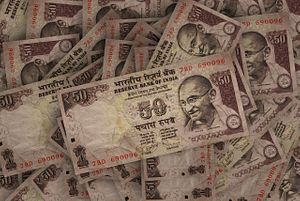The Modi government in India has sought to enhance competition between states in order to draw foreign direct investment (FDI). States have responded by sending high-level delegations to a number of countries, with a focus on drawing investment from Japan, China, and Southeast Asian countries (especially Malaysia and Singapore), especially in the sphere of infrastructure. States have also started to hold investors’ summits, with the most recent one being held by Madhya Pradesh. During such summits, states and partner countries identify focus areas for investment.
Apart from drawing FDI, by encouraging competition between different states, India’s prime minister is also keen on improving India’s “Ease of Doing Business” ranking, bringing it into the top 50. India is ranked 130th in the latest Ease of Doing Business report, released by the World Bank on October 25. India has expressed disappointment at this rank, saying that the reforms that are being undertaken by states are being overlooked.
With states becoming more important in the context of both FDI and business-friendly policies, the state/union territory ease of doing business report released by India’s Department of Industrial Policy and Promotion (DIPP) and the World Bank on October 31 is timely. The rankings help us understand the steps being taken by various state governments to attract more investors.
The index is based on the successes achieved by states in implementing a 340-point Business Reform Action Plan drawn by the central government. That plan includes reforms to regulatory processes, policies, practices, or procedures that are important not only in the context of starting businesses, but as broader logistical issues. Some of the specific recommendations, for example, are a single-window clearance system, tax reforms, labor and environment reforms, dispute resolution policies, and construction permits.
The 2016 all-India State/Union Territory-wise Ease of Doing Business report, which covers the period of July 2015 to June 2016, contains a number of significant points in this regard.
First, Gujarat, which was number one last year, has been upstaged by the states of Andhra Pradesh and Telangana, who both shared the first spot this year. Andhra Pradesh was ranked second last year, while Telangana was ranked 13th. Both south Indian states have been proactive in reaching out to investors from China and Southeast Asia. The competition between them is reminiscent of the 1990s-era economic rivalry between Karnataka and Andhra Pradesh.
Reacting to the rankings, Andhra Pradesh Chief Minister N. Chandrababu Naidu was quick to state that his ultimate target is to make his state one of the top 10 business destinations in the world. Apart from seeking Singapore’s assistance for developing the capital of Amaravati, Naidu has been proactive in drawing Chinese investment, and has visited the country twice. He is also keen to utilize the strategic location of the state, including its long coastline on the Bay of Bengal. The chief minister recently met a South Korean delegation and urged them to invest in the state as well. The delegation, for its part, was all praise for the steps being taken by Naidu to make his state an attractive investment destination. Naidu is playing a key role in supporting the central government’s focus on strengthening ties with ASEAN and countries like Japan and South Korea.
Second, the report clearly shows that a number of states have improved their performance in terms of implementing the reform action plan outlined by the center. In 2015, no state was successful in attaining the “leader” tag, which was awarded to states that had implemented at least 75 percent of the plan (top-ranking Gujarat’s score was 71.14 percent). Seven states were accorded the status of “aspiring leaders” with scores between 50 percent and 75 percent. In the current rankings, 16 states scored over 75 percent, with Telangana and Andhra Pradesh tied at 98.78 percent. In this year’s ranking, the “leaders” category (the criterion for which has been shifted upward, to an implementation percentage of at least 90 percent) includes not just the top ten ranked states, but also Odisha and Punjab (91.07 percent). The next group of “aspiring leaders,” with an implementation rate of 70-90 percent, includes Karnataka, Uttar Pradesh, West Bengal, and Bihar. In total, 17 states crossed the 50 percent mark.
Third, a number of states that have long been dubbed laggards have performed well. Some of the low-income states that fared well in this year’s ranking include Chhattisgarh (fourth place), Madhya Pradesh (fifth), Jharkhand (seventh), Rajasthan (eighth), Odisha (11th), Uttar Pradesh (14th), and Bihar (16th). This is an important point for India, because India’s western and southern states by themselves cannot drive the country’s growth. The need to bring growth to less-developed areas has been flagged on more than one occasion by Modi himself.
Fourth, while seven out of the top 10 states are under BJP control, three states, including the top two performers, are not. Andhra Pradesh’s Naidu and his counterpart in Telangana, Chief Minister K. Chandrashekar Rao, are both affiliated with regional parties, while ninth-ranked Uttarakhand’s chief minister is from the BJP’s main rival, Congress. This goes well with the thrust of the Modi government’s objective of “Cooperative Federalism” — i.e., the central government and state governments working together and not allowing political affiliations to affect this relationship.
Overall, the state Ease of Doing Business rankings show positive steps in encouraging Indian states to pursue the reform agenda and become more investor-friendly. However, a number of logistical and implementation issues still need to be dealt with in order to make individual states and India as a whole a more attractive investment destination.
Tridivesh Singh Maini is a New Delhi-based policy analyst associated with the Jindal School of International Affairs, Sonipat.

































